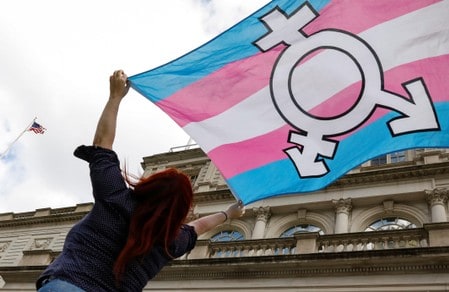WASHINGTON (Reuters) – The U.S. Department of Health and Human Services (HHS) on Friday proposed a rule that would roll back protections for transgender patients under Obamacare, the second rule this month the agency has put forward to allow health care providers to deny services to them.
The landmark Affordable Care Act passed during the Obama administration, otherwise known as Obamacare, extended civil rights protections in healthcare to gender identity and the termination of a pregnancy. The agency’s Office of Civil Rights said it posted a proposed rule to roll back those provisions of the law.
“When Congress prohibited sex discrimination, it did so according to the plain meaning of the term, and we are making our regulations conform,” Roger Severino, head of the Office of Civil Rights, said on a call with reporters.
HHS said it has not enforced the protections since December 2016 after a federal court found they conflicted with a separate existing law.
Typically after HHS proposes a rule, there is a 60-day comment period before the measure is finalized.
Earlier this month, the Office of Civil Rights released a final “conscience rule” allowing doctors, nurses and other health care workers to opt out of participating in or referring procedures with which they disagree, such as abortions, sterilizations and the treatment of gay and transgender patients.
The Trump administration, including HHS, has sought to restrict access to abortion.
LGBTQ advocacy groups and Democratic-controlled states have decried the Trump administration’s efforts to erode protections for lesbian, gay, bisexual, transgender and queer citizens.
“This move by the Trump administration is nothing less than an act of violence against those whose health care needs have historically been ignored, neglected, and dismissed,” Louise Melling, deputy legal director of the American Civil Liberties Union, said in a statement.
Two dozen U.S. states and municipalities sued the Trump administration earlier this week to stop the enforcement of the rule, which is almost certain to be challenged in court.
Severino, of the civil rights office, said the agency will still enforce civil rights protections on the basis of race, color, national origin, disability, age, and sex.
(Reporting by Yasmeen Abutaleb; Editing by Jeffrey Benkoe)


